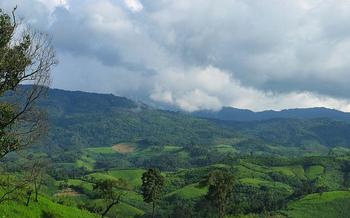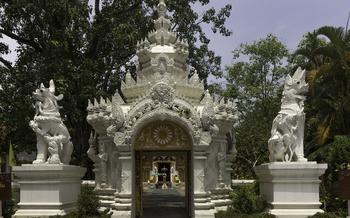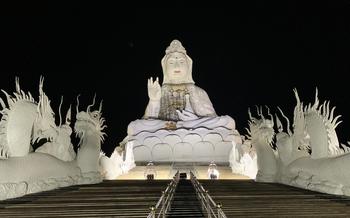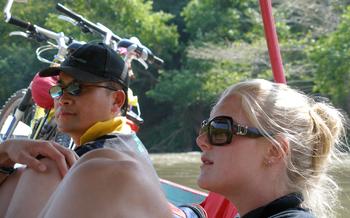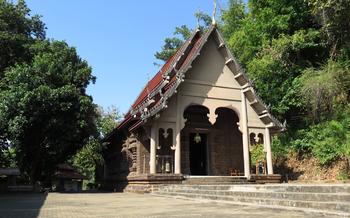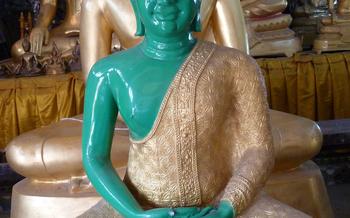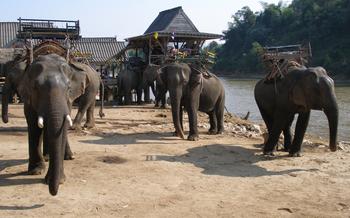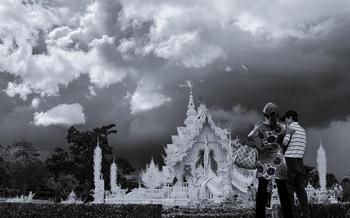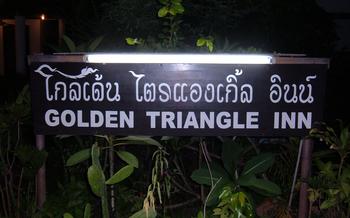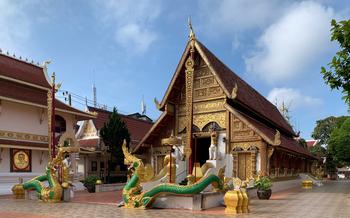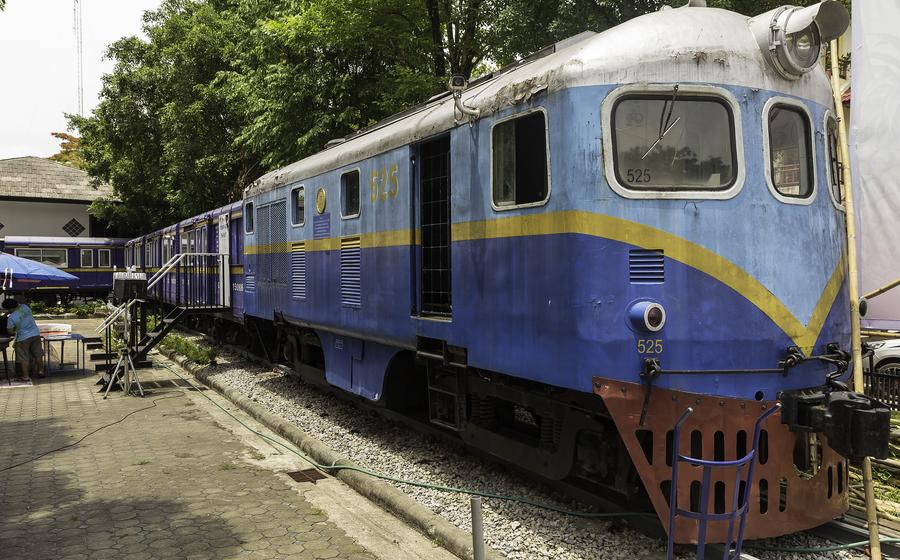
Doi Mae Salong Tea Plantation
- The Doi Mae Salong Tea Plantation: A Unique Experience
- Getting There: Transportation Options
- Admission and Entrance Fees
- Exploring the Plantation: A Walk Through History
- Tea Harvesting and Processing: Behind the Scenes
- Sampling the Flavors: Tea Tasting Experiences
- Local Villages and Ethnic Communities
- Accommodation Options: Staying Nearby
- Shopping for Souvenirs: Unique Finds
- Health and Safety Tips: Staying Safe and Healthy
- Sustainable Tourism: Responsible Practices
- Photography Tips: Capturing the Beauty
- Additional Nearby Attractions: Exploring the Region
- Insider Tip: Secret Lookout Point
The Doi Mae Salong Tea Plantation: A Unique Experience
Nestled amidst the lush green mountains of Chiang Rai, Thailand, the Doi Mae Salong Tea Plantation offers a unique and immersive experience for tea enthusiasts, nature lovers, and cultural explorers. Established by Chinese Nationalist soldiers who settled in the area in the 1960s, the plantation has become a symbol of resilience, blending history, culture, and breathtaking natural beauty.
Visitors to Doi Mae Salong are greeted with stunning scenery as they wind their way through the rolling hills covered in meticulously manicured tea fields. The panoramic views from the plantation are simply breathtaking, offering a bird's-eye perspective of the surrounding mountains and valleys.
At the heart of the experience is the authentic tea-tasting opportunity. Visitors can sample a variety of freshly brewed teas, including the renowned Oolong tea, while learning about the different tea-making processes and the unique flavors that each tea offers.
Beyond tea, Doi Mae Salong provides a glimpse into the rich cultural heritage of the region. The plantation is home to several Akha and Yao villages, where visitors can interact with the local communities, learn about their customs and traditions, and support local businesses and handicrafts.
Getting There: Transportation Options
The Doi Mae Salong Tea Plantation is approximately 120 kilometers (75 miles) east of Chiang Rai city, nestled amidst the scenic mountains of northern Thailand. Getting there offers a range of transportation options, allowing visitors to tailor their journey according to their preferences and budget.
Public Transportation:
Regular buses depart from Chiang Rai's main bus station, offering a budget-friendly option. The journey takes approximately 3 hours, with fares around 100 baht. Songthaews, shared taxis, are another alternative, departing from the same bus station. These shared vehicles offer a more personalized experience and cost slightly more.
Private Transportation:
For greater flexibility and comfort, renting a car or hiring a private taxi is recommended. The drive takes around 2 hours, providing an opportunity to enjoy the beautiful scenery along the way. Rental car prices start from around 1,000 baht per day, while taxis typically charge a flat fee of 1,500-2,000 baht for a round trip.
Guided Tours:
Organized tours from Chiang Rai are available for those seeking a hassle-free experience. These tours typically include transportation, a guided tour of the plantation, and often a visit to other nearby attractions. Prices vary depending on the tour operator and inclusions, typically starting from around 1,200 baht per person.
Admission and Entrance Fees
Visiting the Doi Mae Salong Tea Plantation comes with a modest admission fee, which helps support the maintenance and development of this unique destination. The standard entrance fee for adults is around 50 THB (approximately 50 USD), while students, seniors, and groups may be eligible for discounted rates. It's advisable to inquire about group discounts if traveling with a larger party.
For a more immersive experience, guided tours are available at an additional cost. These tours are led by knowledgeable guides who provide insights into the history, culture, and tea-making process of the plantation. Guided tours typically last for around an hour and offer a deeper understanding of the unique features of Doi Mae Salong.
The plantation is open to visitors daily from morning until evening, providing ample time to explore the grounds, sample the teas, and soak in the serene atmosphere. Be sure to check the official website or inquire locally for any updates or changes in opening hours or admission fees.
Exploring the Plantation: A Walk Through History
Strolling through the Doi Mae Salong Tea Plantation is like stepping back in time. The winding trails lead visitors through verdant tea fields, past historical landmarks, and cultural attractions. Immerse yourself in the rich history of the plantation as you explore the tea museum and exhibition center, showcasing the story of its humble beginnings and its rise to become one of Thailand's most renowned tea-growing regions. Along the way, capture stunning photographs of the picturesque landscapes, rolling hills, and panoramic vistas that make this plantation a true visual masterpiece. Take advantage of the many opportunities for sightseeing and marvel at the beauty of the surrounding nature, creating memories that will last a lifetime.
Tea Harvesting and Processing: Behind the Scenes
At the Doi Mae Salong Tea Plantation, visitors have the unique opportunity to witness tea farming and processing firsthand. Stroll through the tea fields and observe the skilled tea farmers as they carefully pluck the delicate tea leaves. Learn about the different tea varieties grown on the plantation and the meticulous techniques used to harvest them.
Discover the secrets behind the production of high-quality tea as you visit the tea factory. Witness the transformation of fresh tea leaves into fragrant, flavorful tea. Observe the withering, rolling, oxidizing, and drying processes, and gain insights into the intricate art of tea making.
By experiencing the tea-making process firsthand, you'll gain a deeper appreciation for the skill and dedication that goes into producing each cup of tea. The Doi Mae Salong Tea Plantation offers a glimpse into the fascinating world of tea cultivation and processing, providing a truly immersive and educational experience.
Sampling the Flavors: Tea Tasting Experiences
At the Doi Mae Salong Tea Plantation, one of the highlights is the opportunity to sample the diverse flavors of locally produced teas. Visitors can embark on guided tea-tasting sessions led by experts who introduce them to the different varieties of tea grown on the plantation. From light and floral oolong teas to rich and robust black teas, there's a tea for every palate to savor.
During the tasting sessions, participants learn about the unique characteristics of each tea, including its flavor profile, aroma, and origin. They are guided through a sensory journey, comparing different teas and identifying their subtle nuances. The experts share their knowledge of the tea-making process, explaining how the cultivation, harvesting, and processing methods impact the final flavor of the tea.
Whether you're a tea enthusiast or simply curious about the world of tea, the tea-tasting experiences at the Doi Mae Salong Tea Plantation offer an unforgettable opportunity to immerse yourself in the flavors and traditions of this ancient beverage.
Local Villages and Ethnic Communities
Nestled amidst the verdant tea fields, the Doi Mae Salong Tea Plantation is home to diverse ethnic communities, primarily the Akha and Yao tribes. A visit to their villages offers a unique opportunity for cultural immersion and interaction. The Akha, known for their colorful attire and distinctive traditions, have preserved their unique way of life in the mountains. Visitors can witness traditional dances, learn about their customs and beliefs, and purchase handmade crafts and textiles as souvenirs. The Yao, renowned for their herbal medicine and tea-making skills, welcome visitors to their village to share their knowledge and traditions. By interacting with the locals, visitors gain a deeper understanding of the rich cultural heritage that thrives in this region. Supporting local businesses and purchasing handicrafts directly from the artisans helps preserve these communities' livelihoods and traditions.
Accommodation Options: Staying Nearby
When planning your visit to the Doi Mae Salong Tea Plantation, there are various accommodation options to consider that offer a range of experiences to suit different preferences and budgets.
-
Homestays and Guesthouses: For a truly immersive experience, opt for a homestay or guesthouse in one of the nearby villages. This allows you to connect with local families, learn about their way of life, and savor delicious home-cooked meals. Guesthouses offer a more independent stay while still providing a glimpse into local culture.
-
Hotels and Resorts: For those seeking comfort and convenience, there are several hotels and resorts located near the plantation. These offer stunning views of the tea fields and surrounding mountains, as well as amenities such as swimming pools, spas, and restaurants.
-
Camping and Outdoor Experiences: For a unique and adventurous stay, consider camping amidst the tea plantations. Several campsites offer basic facilities and allow you to enjoy the tranquility of nature. Remember to bring your own camping gear and be prepared for cooler temperatures at night.
-
Tips for Finding the Best Accommodation:
- Book in advance, especially during peak season, to avoid disappointment.
- Consider your budget and choose an option that fits your needs and preferences.
- Read reviews and recommendations from other travelers to get a sense of the quality and service of different accommodations.
- If you're staying in a homestay, be open to cultural exchanges and interactions with the local family.
Shopping for Souvenirs: Unique Finds
At the Doi Mae Salong Tea Plantation, you can shop for an assortment of unique and locally-made souvenirs to cherish your experience. From intricately-crafted handicrafts and pottery to vibrantly-colored textiles, you'll find an array of items that showcase the region's rich cultural heritage.
The plantation's gift shop is a treasure trove of tea-related souvenirs. Purchase organic tea products, including freshly-packed tea leaves, flavored teas, and tea-infused beauty products. You can also find tea-themed souvenirs like teapots, teacups, and teapots.
Support local artisans and businesses by purchasing their handmade crafts. The Akha and Yao communities are renowned for their intricate embroidery, weaving, and pottery skills. Look for unique textiles, jewelry, and home décor items that reflect their cultural traditions.
Remember to bargain politely when shopping at the plantation. It's a customary practice in Thailand, and you can often get a good deal if you're willing to negotiate. However, be respectful and avoid being overly aggressive.
Whether you're looking for a special gift for a loved one or a memento to remind you of your time at the Doi Mae Salong Tea Plantation, you'll find something truly unique to take home. So, embrace the local culture, support the community, and indulge in a souvenir shopping spree that will leave you with lasting memories.
Health and Safety Tips: Staying Safe and Healthy
When visiting the Doi Mae Salong Tea Plantation, it's important to prioritize health and safety to ensure a pleasant and responsible experience. Here are some tips to keep in mind:
- Appropriate Clothing and Footwear:
Wear comfortable and sturdy shoes suitable for walking on uneven terrain. Light, breathable clothing is recommended due to the warm climate. Consider layering to adjust to changing temperatures.
- Sun Protection and Hydration:
The plantation is mostly exposed, so protect yourself from the sun with a hat, sunglasses, and sunscreen. Carry a water bottle to stay hydrated, especially during the hotter hours of the day.
- Insect Repellent and First-Aid Kit:
Bring insect repellent to ward off mosquitoes and other insects. A basic first-aid kit is also recommended for minor cuts or injuries that may occur while walking through the tea fields.
- Respecting Local Customs and Traditions:
Remember that the Doi Mae Salong Tea Plantation is home to local communities with unique customs and traditions. Be respectful of their way of life, and avoid any actions or behaviors that may be considered offensive or disrespectful.
Sustainable Tourism: Responsible Practices
As you explore the Doi Mae Salong Tea Plantation, it is important to practice sustainable tourism principles to minimize your environmental impact and support the local community. Here are some tips for responsible travel:
-
Respect the environment: Avoid littering, and dispose of waste properly. Stay on designated trails to prevent damage to the tea plants and surrounding ecosystem.
-
Choose ethical tour operators: Look for tour companies that prioritize sustainability and support local communities. Ask about their practices and policies before booking your tour.
-
Support local businesses: Buy souvenirs and products from local artisans and businesses. This helps to support the local economy and preserve traditional crafts and customs.
-
Respect local customs and traditions: Be mindful of local customs and dress appropriately. Ask permission before taking photos of people, and respect their privacy.
-
Contribute to community development: Consider volunteering your time or donating to local projects that support education, healthcare, or community development. Your contributions can make a positive impact on the lives of local people.
By practicing responsible tourism, you can help preserve the natural beauty and cultural heritage of the Doi Mae Salong Tea Plantation while contributing to the well-being of the local community.
Photography Tips: Capturing the Beauty
The Doi Mae Salong Tea Plantation offers a photographer's paradise, with stunning scenery, panoramic vistas, and vibrant tea fields. To capture the essence of this unique destination, here are some photography tips:
-
Sunrise and Sunset: Plan your visit to coincide with the golden hours of sunrise and sunset. The warm hues of the sky create a magical atmosphere, enhancing the beauty of the plantation.
-
Camera Settings: Use a wide-angle lens to capture the vastness of the tea fields and the surrounding mountains. Adjust your ISO and shutter speed to achieve the desired exposure and depth of field.
-
Composition Techniques: Experiment with different composition techniques to create visually appealing shots. Leading lines, rule of thirds, and depth of field can add interest and dimension to your photographs.
-
Memorable Travel Photos: Take your time, explore different angles, and look for unique perspectives. Capture candid moments of tea farmers at work, visitors enjoying the scenery, or local villagers going about their daily lives. These genuine moments will create lasting memories of your visit.
Additional Nearby Attractions: Exploring the Region
While visiting the Doi Mae Salong Tea Plantation, take the opportunity to explore other nearby attractions that offer unique experiences and stunning scenery.
-
Wat Phra That Doi Kong Mu: Perched atop a hill, this Buddhist temple boasts a striking golden chedi and panoramic views of the surrounding countryside.
-
Mae Fah Luang Garden: A beautiful botanical garden showcasing a diverse collection of plants, flowers, and sculptures, with serene walking trails and picturesque landscapes.
-
Trekking in the Surrounding Mountains: For nature enthusiasts, there are several trekking trails in the vicinity of the plantation, offering breathtaking views and encounters with local flora and fauna.
-
Discovering Other Tea Plantations: The region is home to several other tea plantations, each with its own unique charm and offerings. Consider visiting additional plantations to compare teas and learn more about the tea-making process.
Insider Tip: Secret Lookout Point
While exploring the Doi Mae Salong Tea Plantation, don't miss the hidden lookout point that offers breathtaking panoramic views of the entire plantation and the surrounding mountains. This secret spot is off the beaten path, ensuring a tranquil and serene experience away from the crowds.
To find the lookout point, follow the signs for the tea factory and continue past the factory until you reach a small dirt road on the left. Take this road and drive up the hill, following the signs for the viewpoint. The road is narrow and winding, but it's worth the effort as you'll be rewarded with stunning vistas at the top.
Once you reach the lookout point, take a moment to soak in the beauty of the rolling tea fields, the lush green mountains, and the picturesque valleys below. It's the perfect place to relax, unwind, and capture some memorable photos of your Doi Mae Salong adventure. Remember to bring your camera and a sense of adventure, and enjoy the tranquility of this hidden gem.
